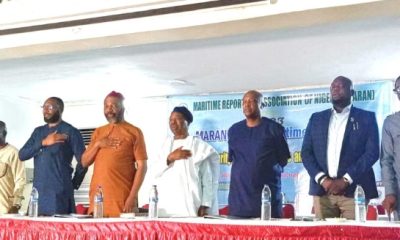Maritime Agencies
MARPOL @ 50: Ex Gulf of Guinea Scribe Questions Nigeria’s Claim To Be A Maritime Nation.
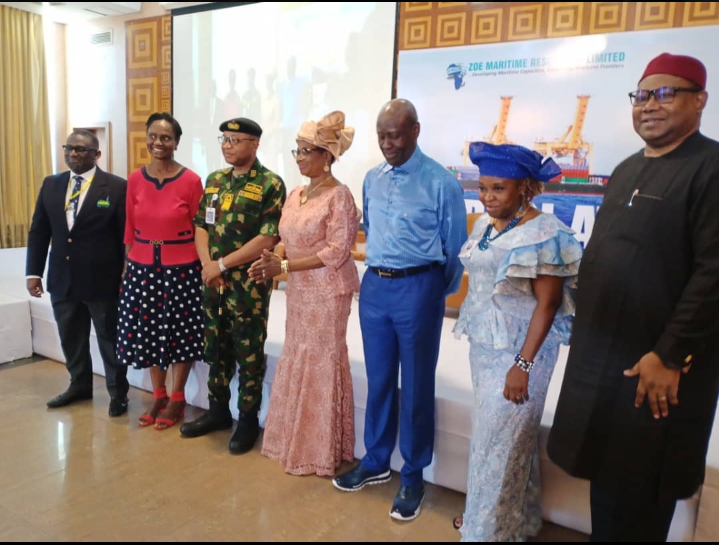
By Izuchukwu Ozoemena
As long as Nigeria and many other African nations do not have ships to enable them participate in global shipping and maritime transportation in the true sense of it, they cannot lay claim to being addressed as maritime nations.
Former Executive Secretary, Gulf of Guinea (GoG) Commission, Ambassador Florentina Adenike Ukonga stated this in Lagos, Tuesday, while speaking at the 2023 Lagos International Maritime Week (LIMWEEK 2023) hosted by Zoe Maritime Resources Ltd.
She particularly regretted that Nigeria cannot be called a maritime country when foreign vessels in this time and age still dominate her territorial waters while the few indigenously-owned are being denied what it takes to breathe and remain in business. The theme of the conference was MARPOL at 50: Pollution from Ships, Africa’s Commitment to Clean Oceans, Seas, Inland Waters and the Maritime Environment.
Falcon Watch Online recalls that 2023 marks the 50th year since the Prevention of Pollution from Ships (MARPOL) Convention was enacted. The aim was to prevent pollution of the marine environment by ships whether it arises from how the ship is operated or from accidents involving ships and other ocean-going crafts.
Even though Nigeria and other African nations have domesticated the MARPOL as major component of their municipal laws, it is debatable if adequate enforcement policies exist to give real meaning and effect to the global instrument to counter pollution on the waters. As long as it remains so, Ukonga contended, Nigeria and other African nations that ratified the MARPOL Convention cannot be called maritime countries in the real sense.
“Maritime transportation in Nigeria and in the West and Central Africa is grossly underdeveloped. Majority of the ships providing maritime transportation services in West and Central African region are from Europe, Asia and the Far East.”
Mrs Ukonga said it should be a huge worry to maritime industry watchers that maritime transportation with so much potential for economic emancipation and development in Africa is virtually being run by non-Africans. Goods cannot be shipped along the coast of West and Central Africa without first of all passing through Europe or Asia, depending on which of these foreign nations own the vessel used for the trans-shipment.
“If maritime transportation is well developed, even if it is within the region,there should be ships plying these routes, stopping in almost all the ports in the region with shorter periods of transportation not exceeding two to five sailing days enroute.
The former envoy, however, acknowledged that being a signatory to the Convention is a first step in the right direction as this ensures that African environment is no longer perceived as a dumping ground for maritime toxic waste, garbage and other hazardous excretions from factories abroad. She encouraged African entrepreneurs to invest in maritime transportation either to transport goods or people especially in inter-state maritime haulage.
“African countries should be involved in regional maritime transportation sector even if we do not yet want to go to Europe, US, Asia or Far East”.
In his contribution, Ambassador Michel Deelen,the Consul-General of Netherlands in Nigeria, referred to the huge potentials embedded in the blue economy and stressed the need to shield these from the destructive effects of pollution from ships and other ocean-going crafts. Nigeria, he suggested, must be serious to put in place structures to discourage ocean pollution not just from ships but other causative factors such as households, factories and random dropping by individuals who see water bodies as dumping ground. Existing laws and sanctions, he recommended, need to be fiercely imposed on ships polluting the Nigerian maritime space as well as manufacturing companies who indiscriminately dump waste in the ocean.
“There is the subject of marine environment pollution. We see all these when we go to the beautiful beaches in Lagos. Recently, we had the World Beach Clean-up Day. But as you can clean up the beach, the next day, everything washes ashore again.”
“So, we need to find structural solutions to this; structural solutions for manufacturing companies, plastic wastes and for the way big international cargo vessels are proposed because the fuel they use in these vessels are not the best quality. Environmentally, a lot of progress still needs to be made in this regard,” the Dutch envoy stressed.
In his goodwill message, His Royal Majesty, the Oniru of Iru Land, Oba Abdulwasiu Omogbolahan Lawal, Abisogun 11, represented by Chief Olumide Oniru, recommended what he called environmentally-friendly and responsible policies to manage the maritime environment which, according to him, his domain has been part of from time immemorial. He recalled that the ocean and Lagos lagoon completely surround his kingdom and that marine and port businesses still impact on the lives of his people.
The monarch assured that despite the hazards of environmental pollution, Iru people will continue to cooperate with the authorities in whatever steps taken to ensure the waters remain clean.
Earlier, Barr Oritsematosan Edodo-Emore, Chair, Zoe Maritime Resources Ltd, the conveners of the event, said Africa’s economic growth and wellbeing is directly related to the ocean economy. She stated that to prevent the pollution of the marine environment by ships, security and other cardinal factors must be addressed.
While hailing the recent creation of the Marine and Blue Economy Ministry in Nigeria, she looked forward to fruitful engagement with stakeholders such as her organization as government strives to combat the problem of water pollution.
Maritime Agencies
Distinguish Between Reclamation and Industrial Dredging, Dredgers’ Association Tells Works Minister.
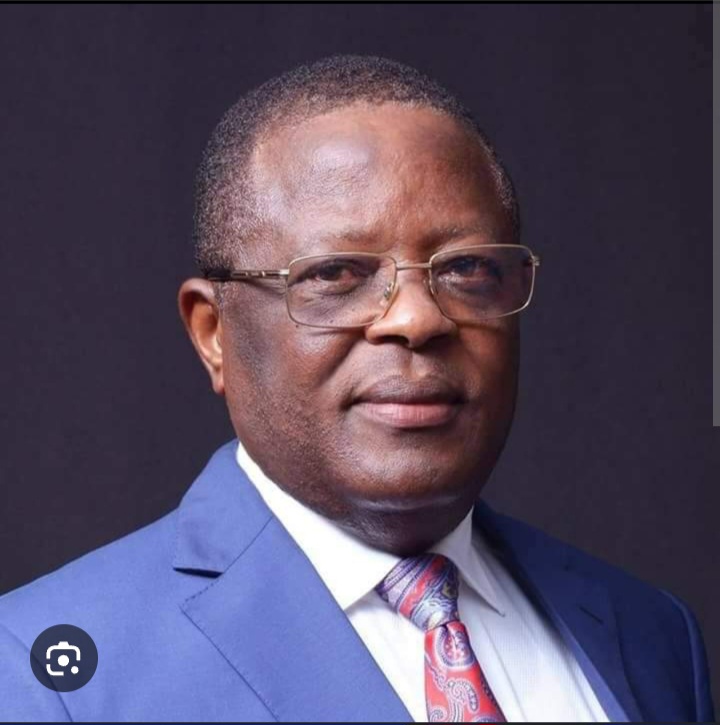
By Izuchukwu Ozoemena
The Dredgers’ Association of Nigeria (DAN) has advised the Minister of Works, David Umahi, to separate reclamation activities from industrial dredging so as not to confuse Nigerians over the two different types of economic activity.
Rising from an emergency meeting in Lagos, Wednesday, DAN took a strong exception to an accusation by the Minister that dredgers are responsible for the poor infrastructural state of Eko and Carter bridges in Lagos.
Disagreeing with the Minister’s position, Mr Richard Ntan, DAN’s General Secretary, submitted that there is no direct corelation between
dredging and bridge infrastructure.
“We wish to clarify that industrial dredging carried out by our members is not the cause of the damage observed in these structures,”
Industrial dredging, according to DAN, is highly regulated, focusing on areas in the creeks and centre of the Lagos lagoon far away from the bridges. Industrial dredging carried out by DAN members is a key essential for maintaining navigable waterways and smooth movement of vessels in and out of Lagos. It is crucial and contributes to growing the city’s economic development.
Industrial dredging, the association’s scribe further clarified, is not harmful to infrastructure such as bridges because the process is driven through a well-articulated environmental ecosystem assessment which ensures deeper waterways for large vessels. There is regulation through professional methods strictly supervised to minimise any negative impact.
However, the association called for thorough investigation of the ongoing reclamation dredging near Third Mainland Bridge as it is time to truly know the status of those who do reclamation dredging activities as against industrial dredging only members of DAN are known for.
“We at DAN support the Minister that reclamation dredging activities should not take place near bridges. It’s important that the Minister finds out the true picture of those dredging near bridges and also not lump us at the Dredgers Association of Nigeria with such operators,” Ntan stated.
Dredgers Association of Nigeria, he insisted, remains committed to the responsible conduct of dredging activities in Lagos and across Nigeria in full compliance with national regulations to ensure that operations and activities do not harm the environment or vital national infrastructure.
DAN, he added, shares in the Minister’s concerns about the need to preserve Nigeria’s infrastructure.
“We are dedicated to ensuring that all dredging operations are carried out in ways that support the nation’s economic growth while safeguarding critical infrastructure such as bridges”.
Maritime Agencies
Enugu Trade Fair: NPA MD Markets Agency’s Simplified Export Processes That Favour Investors.
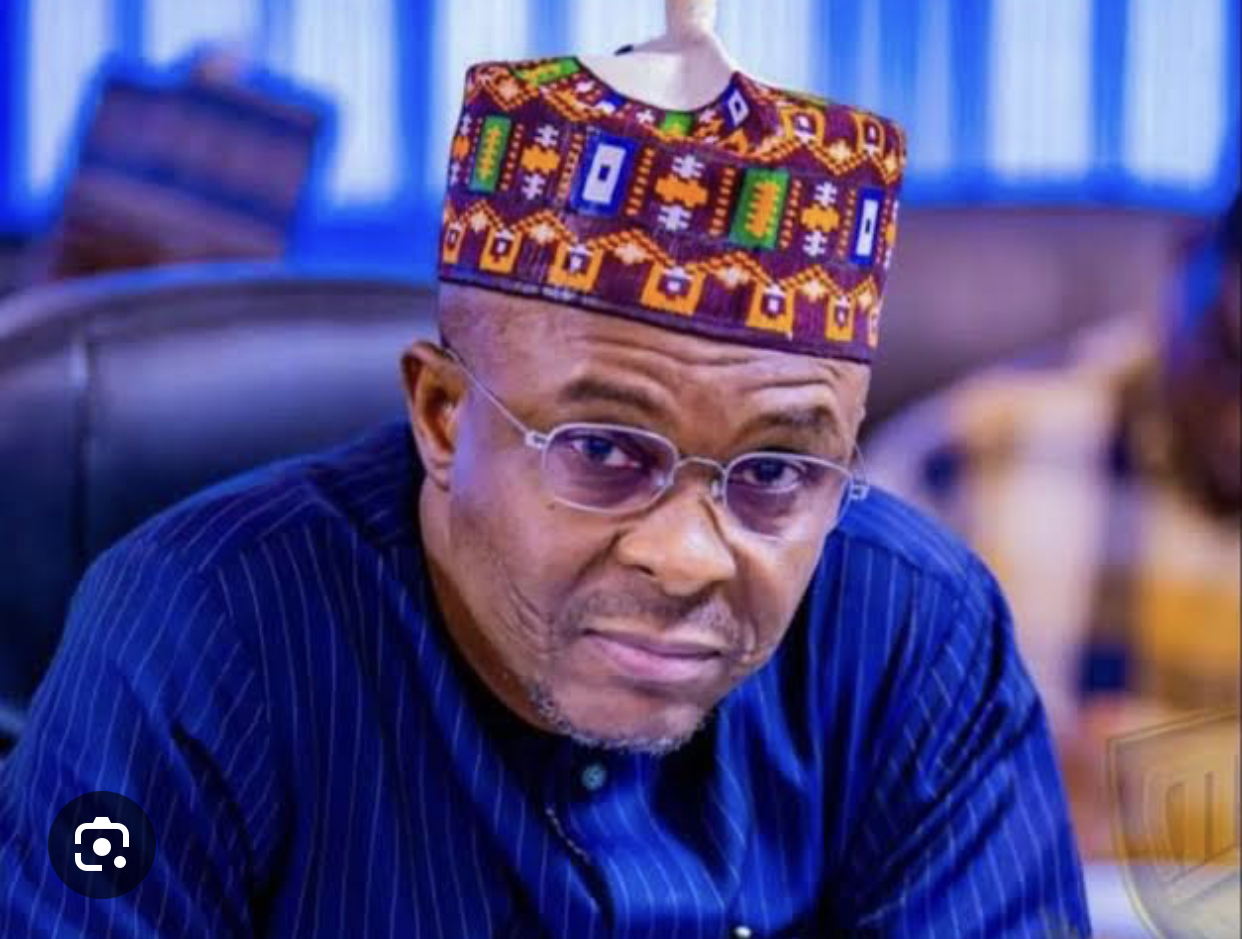
By Izuchukwu Ozoemena
The Nigerian Ports Authority (NPA) is linking value creators in the remotest part of the hinterland with the farthest clusters of demand anywhere on the globe even as it strengthens the domestic economy by promoting balance of trade and establishment of the Export Process Terminals
(EPTs) to simplify the burdensome processes of exporting Nigerian goods.
Therefore, the NPA Managing Director, Dr Abubakar Dantsoho, implores the trading and investing public to explore the tailor-made simplified export processes and other vistas of opportunity available at the agency.
Dr Dantsoho made this call during the ‘NPA Special Day’ session at the 36th Enugu International Trade Fair, with the theme “Developing Nigeria’s Industrial Sector / SMEs for Economic Advancement and Global Recognition”.
He stated that as Nigeria’s foremost trade facilitation platform, the NPA is always proud to be associated with the noble cause that the Trade Fair represents, especially seeing that trade remains the most veritable tool for actualising most of Nigeria’s economic aspirations.
The doors of NPA, he assured stakeholders, are always open for partnerships even beyond the trade fair.
“I therefore want to warmly invite you to interact with our business development team at the NPA pavilion and to also visit our fully interactive online real time website www.nigerianports.gov.ng to access our growth offerings,” he announced.
Dr Dantsoho explained that the EPTs were conceptualized to serve as a one-stop-shop for cargo consolidation, stuffing, documentation, packaging, certification and onward shipment through electronic call-up to the Ports in quick turnaround time, thus eliminating the duplications and bureaucratic overlaps that previously rendered Nigerian exports uncompetitive in the international marketplace.
“To facilitate Port-Hinterland connectivity and create pathways for Small and Medium Scale Enterprises (SMEs) to play in the export value chain, the EPTs are to be linked with Domestic Export Warehouses (DEWs) in synergy with the NEPC and relevant partners.
“To align with the ease of doing business orientation of the Federal Government and the theme of the year’s fair “Developing Nigeria’s Industrial Sector / SMEs for Economic Advancement and Global Recognition”, we are aggressively simplifying our export processes to enable made-in-Nigeria goods transit through our Ports as seamlessly as possible.”
The NPA MD further disclosed that to achieve the goal, the agency is eliminating human interface which encourages underhand dealings by pursuing the full automation of NPA processes and procedures through the Ports Community System (PCS) which lays the groundwork for the implementation of the National Single Window (NSW).
“For clarity, the NSW is the global best practice for delivering the greatest value with the greatest ease by connecting all stakeholders in the trade value chain for seamless interaction at the push of a button,” Dr Dantsoho said.
Dr Dantsoho commended the Enugu Chamber of Commerce, Industry, Mines & Agriculture (ECCIMA) for the resilience to sustain the culture of hospitality and business friendliness that has continued to attract people from all over the globe to be a part of the Trade Fair which is deepening economic prosperity.
He stated that the strategic position of Enugu as the gateway to the South-Eastern hinterland presents huge opportunities for the expansion of export opportunities which is the focal point of the NPA.
Maritime Agencies
Q1, 2025: Tincan Island Port Customs Collects N347bn, Breaks Record.
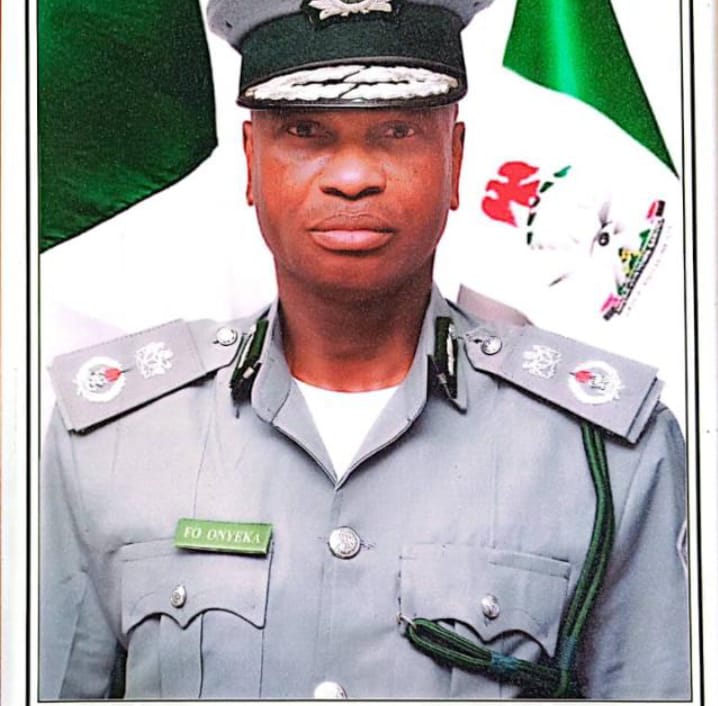
By Izuchukwu Ozoemena
The Tincan Island Port Command of the Nigeria Customs Service posted over N347 billion as revenue collection between January and March, 2025, the Customs Area Controller (CAC), Comptroller Frank Onyeka has said.
Comptroller Onyeka who disclosed this to journalists in his office stated that the breakthrough is in furtherance of the Comptroller-General of Customs, Adewale Adeniyi’s directive on consolidating his policy on collaboration and innovation in discharging the core mandate and functions of the Service.
The January, 2025 revenue generation record, the CAC explained, shows a total of ₦116, 412,735,766.23 which represents 24.06% over and above the figure of ₦88, 430,126,122.76 recorded within the corresponding period of 2024.
The disposition for February 2025 also shows that the sum of ₦103,254,292,839.23k was generated, indicating 2.90 % over and above the sum of ₦100,253,187,074.72k realized during the corresponding month of February 2024.
The Command generated the sum of ₦128,268,749,635.00k for March 2025 and this is 10.3% higher than the ₦115,100,000,000.00k generated over the corresponding period of 2024.
The total amount generated for the first quarter of 2025 is thus ₦347,935,672,476.00k which is 12.6% higher than the ₦304,000,000,000.00k generated in the corresponding period of 2024. The CAC of the Comand announced this figure while speaking with a group of journalists at the conference room of the Command.
Comptroller Onyeka also used the occasion to harp on the need for stakeholders to do more honest declarations so that seamless operational environment may exist and all sides may benefit from a much better conducive ecosystem. He was particularly appreciative of the support of the CG of Customs and the positive reviews that the media has so far accorded the Command.
Comptroller Onyeka promised to continue to engage stakholders in every way possible so that there can be more all round improvement in all aspects of their operations.
-
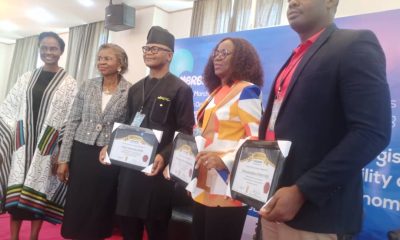
 Maritime Agencies2 weeks ago
Maritime Agencies2 weeks agoZoe Maritime Breakfast Meeting: NCDMB, NIWA, LASWA Discuss Maritime Logistics, Sustainability of Ocean Economy.
-

 Maritime Agencies2 weeks ago
Maritime Agencies2 weeks agoANTI-SMUGGLING: Kebbi Customs Generates N13.3M In A Month, Confiscates Contrabands Worth N84.2 M.
-

 Maritime Agencies2 weeks ago
Maritime Agencies2 weeks agoPorts Commissioner of Police Commends Bivbere-led MARAN for Responsible Reportage of Maritime Sector
-
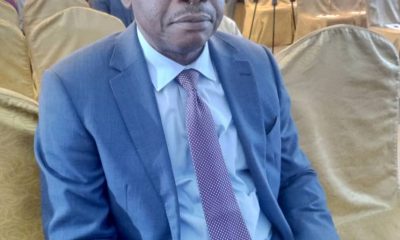
 Maritime Agencies2 weeks ago
Maritime Agencies2 weeks agoMAN, Oron, Sponsors Inland Waterways Safety Awareness Campaign, Donates Life Jackets.
-
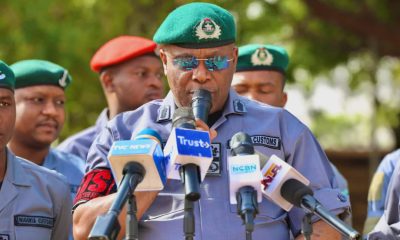
 Maritime Agencies2 weeks ago
Maritime Agencies2 weeks ago‘OPERATION WHIRLWIND’: Customs Renews Commitment to Tackling Smuggling, Hauls Largest PMS Seizure in Kebbi.
-
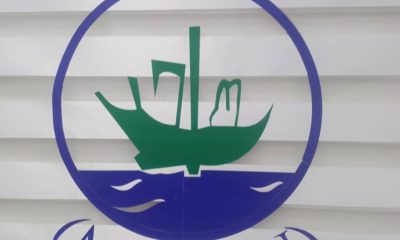
 Maritime Agencies1 week ago
Maritime Agencies1 week agoMARAN Hosts Discussion on Nigeria-China Currency Swap Deal: Opportunities, Challenges
-

 Maritime Agencies2 days ago
Maritime Agencies2 days agoQ1, 2025: Tincan Island Port Customs Collects N347bn, Breaks Record.
-
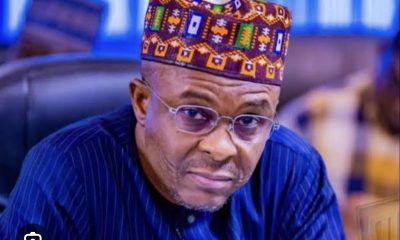
 Maritime Agencies2 days ago
Maritime Agencies2 days agoEnugu Trade Fair: NPA MD Markets Agency’s Simplified Export Processes That Favour Investors.


